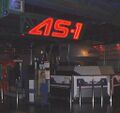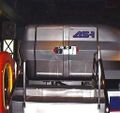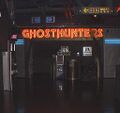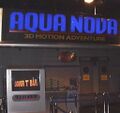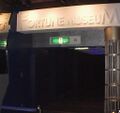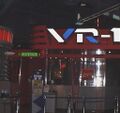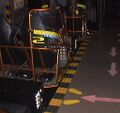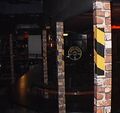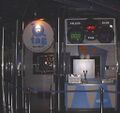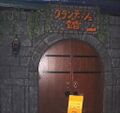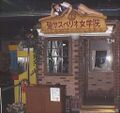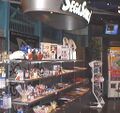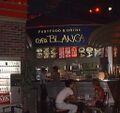Fukuoka Joypolis
From Sega Retro

|
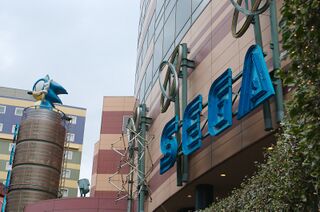
|
| Fukuoka Joypolis |
|---|
| Location: 福岡県福岡市博多区住吉1丁目2-22 キャナルシティ博多4F・5F, Japan |
| Opened: 1996-04-20[1] |
| Closed: 2001-09-24[2] |
Fukuoka Joypolis (福岡ジョイポリス) was a Joypolis indoor amusement theme park opened by Sega. Located in the large Canal City Hakata complex and originally planned to be a Galbo location, it launched alongside it in April 1996, closing just under five and a half years later in September 2001 amidst a restructuring at Sega. One half of its former space subsequently became Club Sega Canal City.
Contents
History
In 1994, Sega launched its Amusement Theme Park concept with the openings of the Osaka ATC Galbo and the then-flagship Yokohama Joypolis indoor theme parks, creating two separate chains for a proposed 50 venues in Japan by 2000. Both had proved to be initially successful, however further Galbo parks, Ichikawa Galbo and Yokkaichi Galbo, were falling short of expectations, in contrast to the consistent numbers the flagship Yokohama location and newly-opened Niigata Joypolis were making. As a result, further emphasis was put on the Joypolis naming scheme, resulting in the removal of attractions and entry fees from the Ichikawa and Yokkaichi parks, as well as the two planned locations for 1996, Fukuoka Galbo and Shinjuku Galbo, being taken in under the Joypolis name some time after January 1996.
Shortly after its renaming, Fukuoka Joypolis opened in April 1996, occupying 4,610m² on the fourth and fifth floors of the Canal City Hakata complex. Likely due to the short amount of time between its opening and replanning, it did not make use of any specialised theming usually typical of Joypolis locations, though was the first venue to use the brand's redesigned logo. Its premier attraction on opening day was Aqua Nova, supporting several other examples debuted in the previous years, as well as a Cafe Blanca restaurant and a SegaSonic & Tails gift shop. The Funteraction line of machines was also unveiled at the location.
The site saw continued support in the subsequent years, receiving new Sega-made attractions such as Wild River and Drift Cart to replace its older examples, in addition to smaller 3D sound attractions developed by Human. Despite this, restructurings at Sega cut budgets heavily, and Fukuoka Joypolis became the fourth Joypolis to close permanently in September 2001. After its closure, part of the space that the venue used was split up and sold off - some of it was leased to a Ramen Stadium restaurant, whilst another section had became Club Sega Canal City by mid-November 2001, using the original outside façade of the venue with no alterations.
Attractions
Original attractions
- VR-1
- Aqua Nova
- AS-1
- Ghost Hunters DX
- Q-Tag
Later attractions
Gallery
3D sound attractions developed by Human
Magazine articles
- Main article: Fukuoka Joypolis/Magazine articles.
Promotional material
References
- ↑ Sega Saturn Magazine, "1996-08 (1996-05-10,24)" (JP; 1996-04-26), page 43
- ↑ http://sega.jp/joypolis/fukuoka.html (Wayback Machine: 2001-11-22 02:38)
| Joypolis venues |
|---|
| Current |
| Tokyo Joypolis (1996) | Shanghai Joypolis (2014) | Qingdao Joypolis (2015) |
| Former |
| Shinjuku Joypolis (1996-2000) | Niigata Joypolis (1995-2001) | Yokohama Joypolis (1994-2001) | Fukuoka Joypolis (1996-2001) | Kyoto Joypolis (1997-2002) | Umeda Joypolis (1998-2018) | Okayama Joypolis (1998-2018) | Joypolis VR Shibuya (2018-2020) |



